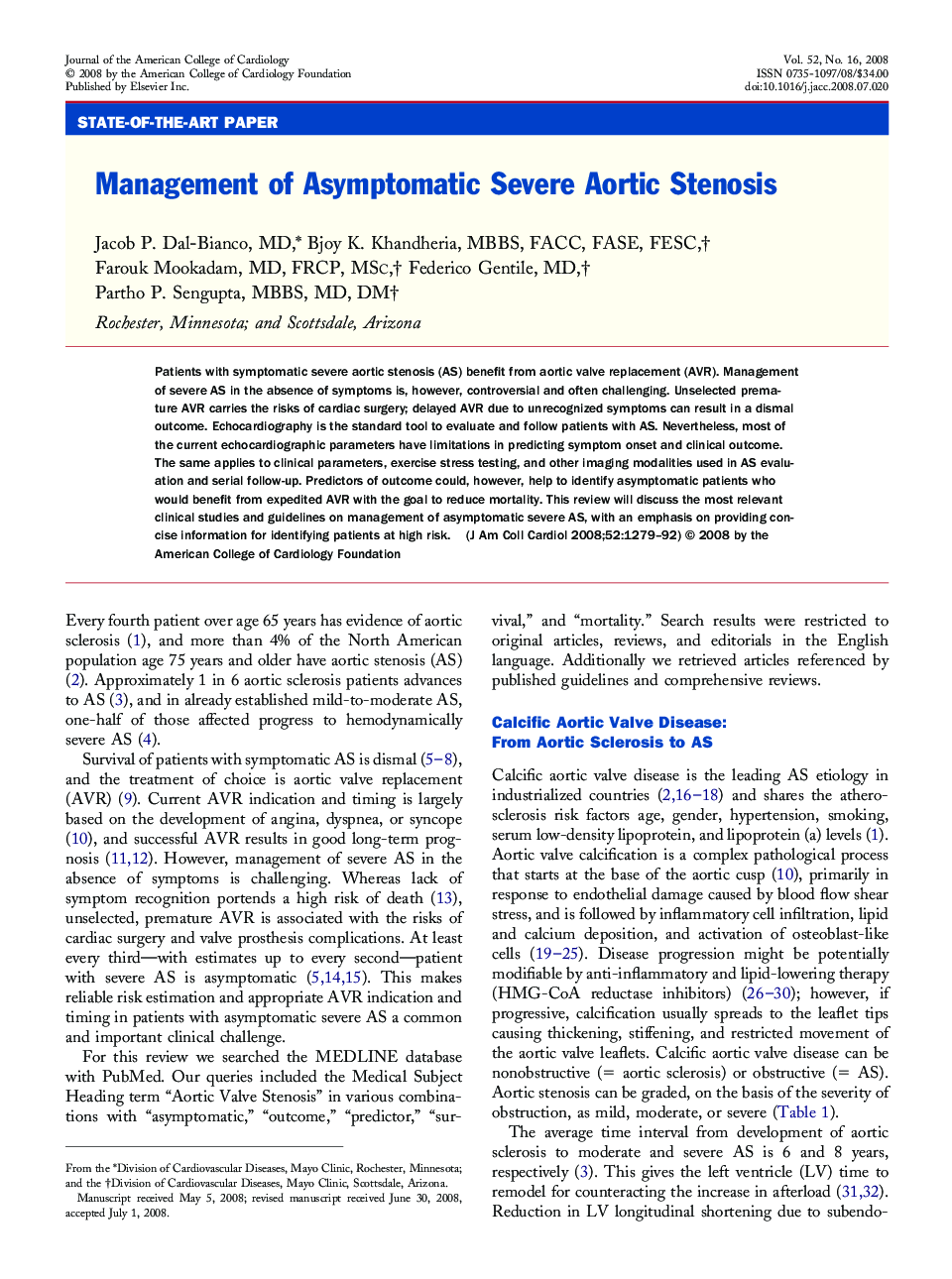| Article ID | Journal | Published Year | Pages | File Type |
|---|---|---|---|---|
| 2952522 | Journal of the American College of Cardiology | 2008 | 14 Pages |
Patients with symptomatic severe aortic stenosis (AS) benefit from aortic valve replacement (AVR). Management of severe AS in the absence of symptoms is, however, controversial and often challenging. Unselected premature AVR carries the risks of cardiac surgery; delayed AVR due to unrecognized symptoms can result in a dismal outcome. Echocardiography is the standard tool to evaluate and follow patients with AS. Nevertheless, most of the current echocardiographic parameters have limitations in predicting symptom onset and clinical outcome. The same applies to clinical parameters, exercise stress testing, and other imaging modalities used in AS evaluation and serial follow-up. Predictors of outcome could, however, help to identify asymptomatic patients who would benefit from expedited AVR with the goal to reduce mortality. This review will discuss the most relevant clinical studies and guidelines on management of asymptomatic severe AS, with an emphasis on providing concise information for identifying patients at high risk.
